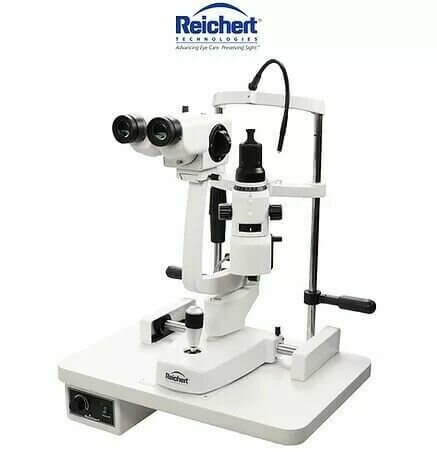5 Benefits of Reichert Xcel 255 Slit Lamp
In the field of ophthalmology, slit lamps play a crucial role in providing detailed examination and diagnosis of various eye conditions. One such advanced instrument that has gained recognition among eye care professionals is the Reichert Xcel 255 Slit Lamp. This state-of-the-art device combines cutting-edge technology with ergonomic design, allowing for enhanced visualization and accurate assessments. In this blog post, we will delve into the features, benefits, and applications of the Reichert Xcel 255 Slit Lamp, shedding light on its significance in modern eye care practices.
Sleek Design and Ergonomics:
The
Reichert Xcel 255 Slit Lamp is designed with both patient and practitioner
comfort in mind. Its sleek and compact design saves valuable office space,
while the adjustable headrest and chin rest ensure optimal patient positioning.
The instrument's ergonomic controls and intuitive user interface make it
effortless for eye care professionals to operate and maneuver, resulting in
improved workflow efficiency.
Advanced Optics:
At
the heart of the Reichert Xcel 255 Slit Lamp lies a set of advanced optics that
provide exceptional clarity and resolution. With a Galilean converging
binocular microscope, high-quality optics, and a wide field of view, this slit
lamp enables practitioners to visualize the finest details of the anterior
segment of the eye. Whether examining the cornea, iris, lens, or anterior
chamber, the instrument offers crisp, detailed images, facilitating accurate
diagnosis and treatment planning.
Versatile Illumination Options:
The
Reichert Xcel 255 Slit Lamp offers a variety of illumination options to suit
different examination needs. The instrument features adjustable slit widths and
lengths, allowing for precise control and customization of the light beam. Additionally,
practitioners can choose from various light sources, including white light,
cobalt blue filter, red-free filter, and diffuser, enabling them to assess
different structures and identify specific eye conditions efficiently.
Imaging and Documentation Capabilities:
Incorporating
modern technology, the Reichert Xcel 255 Slit Lamp offers integrated imaging
and documentation capabilities. Eye care professionals can capture
high-resolution images and videos of the anterior segment, facilitating
documentation, patient education, and effective communication with colleagues.
This feature proves particularly valuable in monitoring the progression of eye
conditions and in the evaluation of treatment outcomes.
Enhanced Workflow and Connectivity:
The
Reichert Xcel 255 Slit Lamp aims to streamline clinical workflow and enhance
connectivity. With seamless integration into electronic medical record (EMR)
systems, practitioners can easily store and access patient data, examination
images, and other relevant information. This connectivity not only improves
efficiency but also promotes collaboration and data sharing among healthcare
professionals, leading to better patient care and outcomes.
Applications in Eye Care:
The
Reichert Xcel 255 Slit Lamp finds extensive applications in various eye care
settings. It aids in the diagnosis and management of conditions such as corneal
abrasions, cataracts, glaucoma, conjunctivitis, and dry eye syndrome. The
detailed examination provided by this slit lamp assists practitioners in
detecting abnormalities, assessing disease progression, and monitoring
treatment efficacy.
The
Reichert Xcel 255 Slit Lamp stands as a remarkable instrument that combines
advanced optics, ergonomic design, and integrated imaging capabilities to
deliver a comprehensive solution for eye care professionals. Its versatility,
user-friendly interface, and connectivity options make it an essential tool in
modern ophthalmic practices. By providing exceptional visualization and
documentation capabilities, this slit lamp contributes to accurate diagnosis,
effective treatment planning, and improved patient outcomes. With its wide
range of features and applications, the Reichert Xcel 255 Slit Lamp continues
to shape the future of eye care.




Comments
Post a Comment